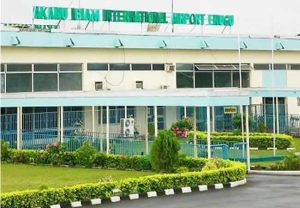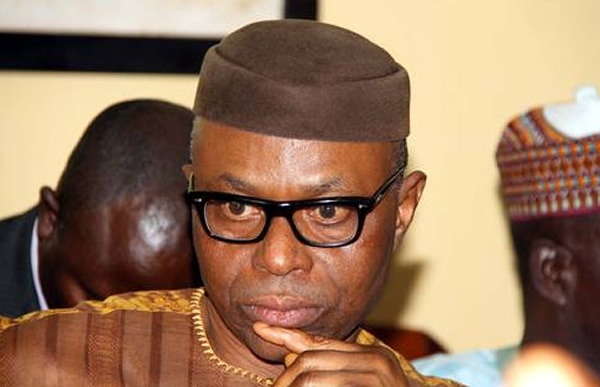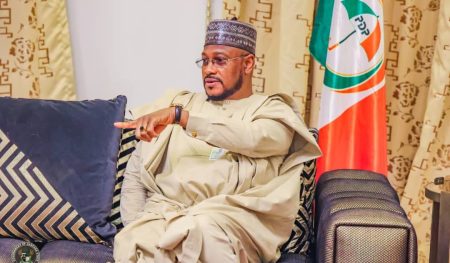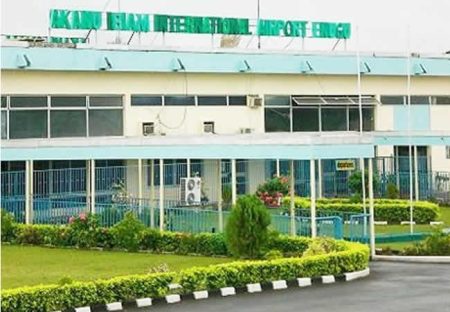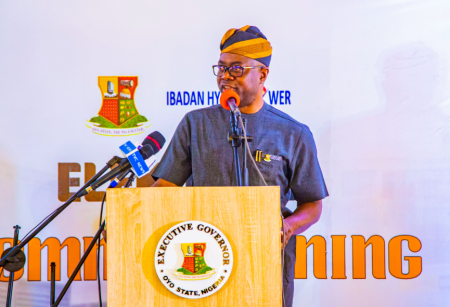The Exodus of Healthcare Professionals: A Call for Increased Funding and Systemic Reform
The alarming rate at which medical professionals are leaving Nigeria for greener pastures has become a pressing concern, demanding immediate and decisive action. Former Ondo State Governor Olusegun Mimiko has highlighted the critical need for increased funding in the health sector as a crucial step in stemming this “brain drain.” Speaking at a lecture commemorating the 81st birthday of Senator Bode Olajumoke, Mimiko emphasized the urgent need for system-wide reform anchored on increased funding to retain skilled medical personnel within the country. He argued that Africa, and Nigeria in particular, must recognize a shift from involuntary subjugation to a more insidious form of voluntary subjugation, manifested in the loss of its human capital to more developed nations. This exodus of talent undermines the continent’s development potential and perpetuates a cycle of dependence.
Mimiko’s call for increased funding resonates deeply within the context of Nigeria’s healthcare system, which has long been plagued by inadequate resources, dilapidated infrastructure, and low morale among healthcare workers. These factors contribute to a challenging work environment, pushing many skilled professionals to seek better opportunities abroad. Increased funding, he argued, is not simply a matter of providing higher salaries but is essential for creating a conducive work environment that supports professional growth, provides access to modern equipment and technology, and ensures a sustainable healthcare system capable of meeting the needs of the population. Without such investment, the brain drain will continue unabated, further weakening the already fragile healthcare infrastructure.
Addressing the Root Causes: Poverty, Inequality, and Access to Essential Services
The current Governor of Ondo State, Lucky Aiyedatiwa, echoed Mimiko’s concerns, adding that the underlying issues of poverty, inequality, and limited access to education and healthcare must be addressed comprehensively. Represented by his deputy, Dr. Olayide Adelami, Governor Aiyedatiwa acknowledged the interconnectedness of these societal challenges and their contribution to the brain drain. He pointed out that Senator Olajumoke’s legacy of service and commitment to human welfare provides a model for addressing these issues, aligning with his administration’s policies focused on improving education, healthcare, and economic empowerment.
The Governor’s remarks underscore the need for a holistic approach to tackling the brain drain. While increased funding for the health sector is paramount, it must be accompanied by broader societal reforms that address the root causes of poverty and inequality. Investing in education creates a pathway to better opportunities, empowering individuals and contributing to a more skilled workforce. Improving access to healthcare ensures a healthy and productive population, further bolstering economic growth. By addressing these interconnected challenges, Nigeria can create a more equitable and prosperous society, reducing the allure of emigration for its skilled professionals.
Senator Olajumoke’s Legacy of Service: A Beacon of Hope and Inspiration
The event celebrating Senator Olajumoke’s 81st birthday served as a poignant reminder of his enduring contributions to Ondo State and Nigeria. His dedication to public service, guided by his faith and values, has made a lasting impact on countless lives. Governor Aiyedatiwa expressed his administration’s pride in identifying with Senator Olajumoke’s commitment to promoting human welfare and dignity, highlighting the alignment between the Senator’s values and the administration’s policies. This recognition underscores the importance of ethical leadership and its role in shaping a more just and equitable society.
Senator Olajumoke’s legacy provides a framework for addressing the complex challenges facing Nigeria, including the brain drain. His focus on human welfare and dignity emphasizes the importance of investing in people, providing them with the opportunities and resources they need to thrive. This approach is crucial for creating a society where skilled professionals, including those in the healthcare sector, feel valued and supported, reducing their incentive to seek opportunities elsewhere.
The Need for a Multi-pronged Approach: Investing in People, Infrastructure, and Systems
Addressing the brain drain requires a multi-pronged approach that combines increased funding, systemic reform, and broader societal interventions. Investing in human capital through education and training is essential for creating a skilled workforce. Improving healthcare infrastructure, including facilities, equipment, and technology, is crucial for providing quality care and attracting and retaining skilled professionals. Strengthening healthcare systems, including management, administration, and policy, is necessary for ensuring efficient and effective service delivery.
Furthermore, fostering a culture of respect and appreciation for healthcare professionals is vital for boosting morale and creating a more supportive work environment. This includes providing competitive salaries and benefits, opportunities for professional development, and a safe and conducive work environment. By addressing these multifaceted challenges, Nigeria can create a healthcare system that attracts and retains the best talent, ensuring quality care for its citizens and contributing to the nation’s overall development.
The Way Forward: Collaborative Efforts and Sustainable Solutions
The exodus of healthcare professionals from Nigeria demands a collaborative effort involving government, healthcare institutions, professional organizations, and the international community. Developing strategies to incentivize healthcare professionals to stay in the country, such as enhanced remuneration, improved working conditions, and career development opportunities, is crucial. Investing in medical education and training programs to produce a steady stream of qualified professionals is also essential. Strengthening primary healthcare services to reduce the burden on tertiary care facilities and improve access to healthcare in underserved communities is equally important.
Creating a conducive environment for healthcare professionals to thrive requires addressing the root causes of poverty, inequality, and lack of access to essential services. This includes investing in education, promoting economic empowerment, and ensuring access to quality healthcare for all citizens. By adopting a comprehensive and collaborative approach, Nigeria can stem the brain drain, strengthen its healthcare system, and build a healthier and more prosperous future for its people. The challenge is significant, but with concerted effort and a commitment to sustainable solutions, the exodus of healthcare professionals can be reversed, ensuring quality healthcare for all Nigerians.




